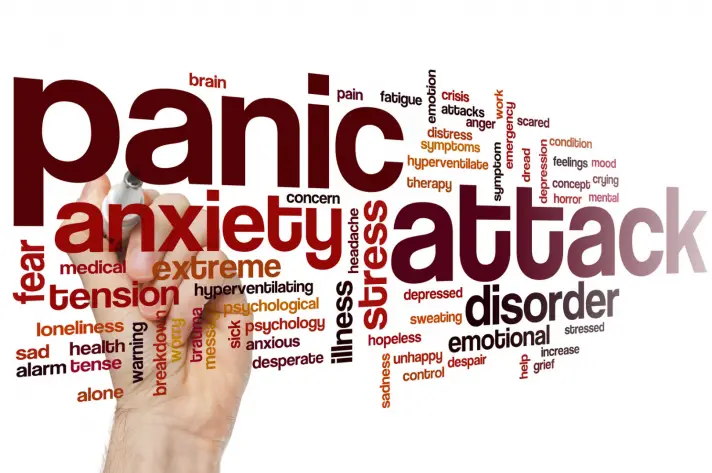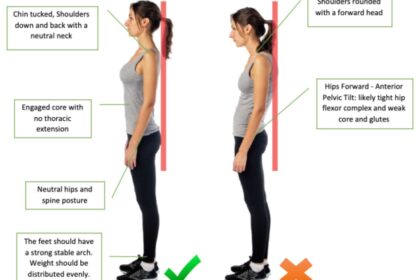B vitamins are a group of water-soluble vitamins that play a vital role in maintaining good health. They are essential for proper metabolism, nerve function, and the production of energy. The B-complex vitamins include thiamine (B1), riboflavin (B2), niacin (B3), pantothenic acid (B5), pyridoxine (B6), biotin (B7), folate (B9), and cobalamin (B12). While these vitamins are found in many foods, studies have shown that they are often deficient in individuals suffering from panic attacks, anxiety, and depression.
The link between B vitamins and mental health is not a new discovery. In fact, research has been conducted on this topic for several decades. In the early 1990s, studies began to suggest that individuals with low levels of certain B vitamins were more likely to experience symptoms of anxiety and depression.
One study published in the American Journal of Psychiatry in 1997 found that individuals with depression had lower levels of vitamin B6 than those without depression. Similarly, a study published in the Journal of Psychiatric Research in 1999 found that individuals with anxiety had lower levels of vitamin B12 than those without anxiety.
More recent studies have continued to support the link between B vitamins and mental health. For example, a study published in the Journal of Affective Disorders in 2017 found that individuals with panic disorder had significantly lower levels of vitamin B6, vitamin B9, and vitamin B12 than those without panic disorder. Another study published in the Journal of Psychiatric Research in 2018 found that individuals with major depressive disorder had significantly lower levels of vitamin B12 than those without depression.
There are several reasons why B vitamins may be important for mental health. For example, B vitamins are involved in the production of neurotransmitters, which are chemicals that allow nerve cells to communicate with each other. Neurotransmitters play a vital role in regulating mood, so it makes sense that deficiencies in B vitamins could lead to mood disorders.
B vitamins are also important for energy production. They help convert food into energy that the body can use. Low levels of B vitamins can lead to fatigue, which can exacerbate symptoms of anxiety and depression.
Additionally, B vitamins are important for brain function. They help protect the brain from damage caused by free radicals, which are harmful molecules that can cause oxidative stress. Oxidative stress has been linked to several mental health conditions, including anxiety and depression.
Given the link between B vitamins and mental health, it is important for individuals to ensure that they are getting enough of these vitamins in their diet. Here are the top 10 foods that are rich in B vitamins:
- Liver – Liver is a particularly rich source of vitamin B12, which is important for brain function and the production of red blood cells. Unfortunately this isn’t the best tasting food out there. I’d much prefer a nice steak, burger, or fish dish.. but if you want to get liver into your diet without actually eating it I recommend this multi-organ complex capsule from Paleovalley. It’s 15% off at this link and will support the health of your liver, kidneys, heart and more! Plus, it has a lot of b12 in it. This supports energy levels, the nervous system and more!
- Beef – Beef is a good source of several B vitamins, including vitamin B12, thiamine, and riboflavin.
- Chicken – Chicken is a good source of several B vitamins, including niacin, vitamin B6, and vitamin B12.
- Salmon – Salmon is a good source of vitamin B12 and vitamin B6, as well as omega-3 fatty acids, which have been linked to improved mental health.
- Tuna – Tuna is a good source of vitamin B12 and niacin, as well as omega-3 fatty acids.
- Eggs – Eggs are a good source of several B vitamins, including vitamin B12, riboflavin, and folate.
- Spinach – Spinach is a good source of several B vitamins, including folate, riboflavin, and vitamin B6.
- Broccoli – A great source of many B-vitamins. Broccoli is a highly nutritious vegetable that contains a wide range of vitamins and minerals, including several B vitamins. B vitamins are essential for many functions in the body, including energy production, cell growth and division, and the proper functioning of the nervous system. In this article, we will focus on the B vitamins found in broccoli.
- Vitamin B1 (Thiamin) Broccoli is a good source of vitamin B1, also known as thiamin. Thiamin is involved in energy metabolism and the proper functioning of the nervous system. It also plays a role in the synthesis of DNA and RNA. A single cup of cooked broccoli contains about 0.1 milligrams of thiamin, which is about 8% of the recommended daily intake for adults.
- Vitamin B2 (Riboflavin) Broccoli is also a good source of vitamin B2, also known as riboflavin. Riboflavin is involved in energy metabolism and the proper functioning of the nervous system. It is also important for healthy skin, eyes, and mucous membranes. A single cup of cooked broccoli contains about 0.2 milligrams of riboflavin, which is about 15% of the recommended daily intake for adults.
- Vitamin B3 (Niacin) Broccoli is a good source of vitamin B3, also known as niacin. Niacin is involved in energy metabolism and the proper functioning of the nervous system. It is also important for healthy skin, digestive system, and mucous membranes. A single cup of cooked broccoli contains about 1.2 milligrams of niacin, which is about 8% of the recommended daily intake for adults.
- Vitamin B5 (Pantothenic Acid) Broccoli is a good source of vitamin B5, also known as pantothenic acid. Pantothenic acid is involved in energy metabolism and the synthesis of cholesterol, hormones, and neurotransmitters. It is also important for healthy skin and hair. A single cup of cooked broccoli contains about 0.6 milligrams of pantothenic acid, which is about 12% of the recommended daily intake for adults.
- Vitamin B6 (Pyridoxine) Broccoli is a good source of vitamin B6, also known as pyridoxine. Pyridoxine is involved in energy metabolism and the proper functioning of the nervous system. It is also important for the synthesis of neurotransmitters and the production of red blood cells. A single cup of cooked broccoli contains about 0.2 milligrams of pyridoxine, which is about 10% of the recommended daily intake for adults.
- Almonds: Almonds are a great source of vitamin B2 and vitamin E. They are also high in healthy fats and fiber.
- Avocado: Avocado is a good source of vitamin B6 and folate. It is also high in healthy fats and fiber.Another great tool that I have found to be helpful in my own slumps of sadness and depression is RLT, which is short for red light therapy. Red light therapy helps to improve brain chemistry, give you energy and uplift your overall mood. It improves blood flow, the health of the body and mind in many ways. I got a Mito Red light (click here to visit) and use it every day in the morning with my water to hydrate. Hydration and light are great for the mind and body to start the day. I promise you, these two things along can make a huge difference. Use the discount code healthywildfree to get a discount on your Mito Red light. If you want to read about the many benefits of red light therapy click here to read about the top 10 health benefits of red light therapy. There are many benefits beyond brain health!
This one time purchase is worth the investment into your health. I own the full light panel (for my whole body) as well as the portable one for the road now.
Recommended Reading:
3 Things That Beat Depression – They Work Much Better Than Antidepressants Without The Side Effects




